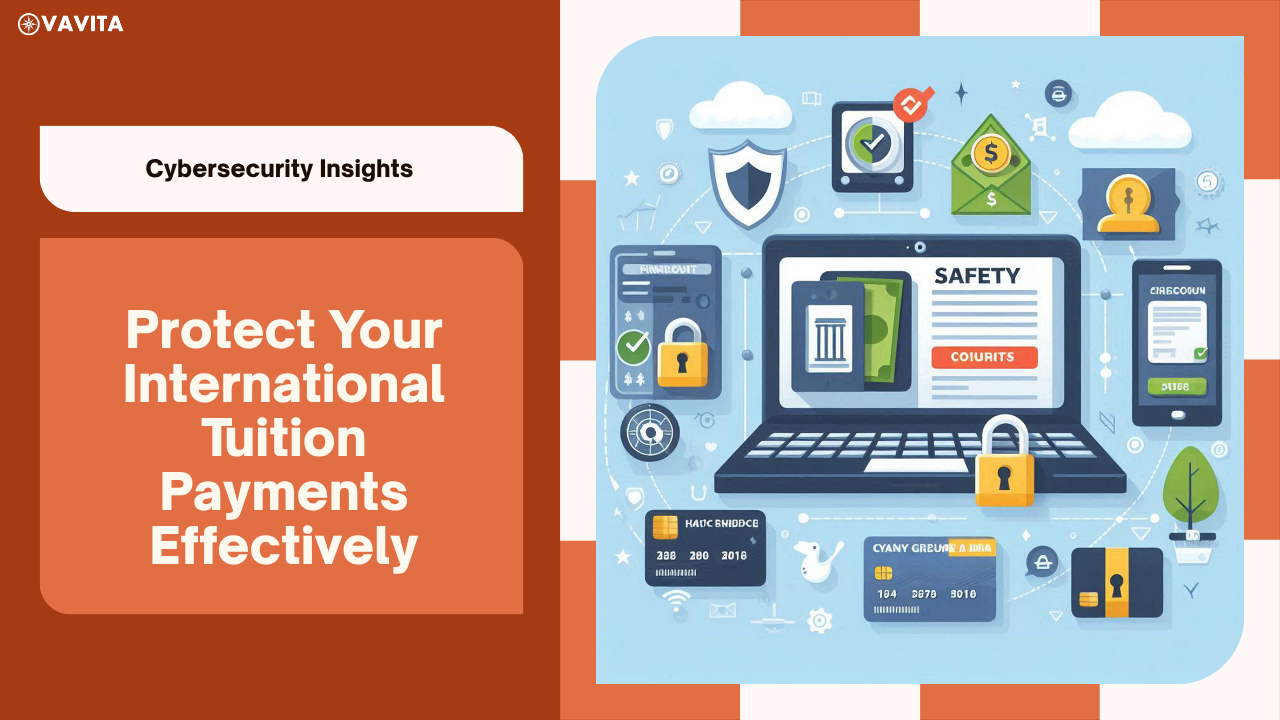Cybersecurity Awareness for International Tuition Payments

Cybersecurity risks in tuition payments are rising – students often pay tuition online using laptops and credit cards, making awareness and secure platforms critical. International students from Africa and Pakistan face unique challenges when paying tuition abroad.
Beyond exchange rates and bank hurdles, they are increasingly targeted by cybercriminals who exploit payment processes. Phishing emails, spoofed payment links, and intercepted bank transfers are real dangers, and falling victim can cost students their education.
Cybersecurity Risks to Watch Out For in International Tuition Payments
1. Phishing and Spoofed Payment Requests
Cybercriminals often impersonate universities like Birmingham University, Kings College London or government agencies to trick students into sending money to the wrong account. Unaware students who follow these bogus instructions can end up wiring tuition to criminal accounts, only discovering the fraud when the actual university reports non-payment. This kind of scam – a form of business email compromise – exploits students’ trust and unfamiliarity with foreign procedures.
2. Unapproved Payment Agents and Discount Scams: In regions where international transfers are difficult, students may be tempted by individuals or parallel market companies or scammers who collect the student’s money, then use a stolen credit card to pay the university, sometimes even accessing the student’s online account to do so. The student thinks the tuition is paid and believes everything is fine. However, the payment is rejected or charged back weeks later when the bank discovers the card was stolen.
One recent case involved students who lost $10,000 by trusting an unregulated payment company on a social app. Students should ensure they use regulated services like Vavita to ensure payments are made securely and on time.
3. Intercepted Transfers and Payment Diversion: Even when a student initiates a legitimate bank transfer, there’s a risk of interception by hackers. Sophisticated attackers can hack email communications or use malware to insert themselves. For instance, a fraudster might send a last-minute “correction” email with new bank account details that look official or compromise a university email account to request additional payments. Students who aren’t highly vigilant could send funds to a criminal’s account, which is hard to recover.
Educating Students on Secure Payment Practices
Institutions should proactively educate their international students on cybersecurity and safe payment habits to combat these threats:
- Use Regulated and Licensed companies: Always pay tuition through regulated and licensed companies. Verify that the website URL is correct and secured (look for the padlock icon in the browser). Bookmark the official payment portal to avoid impostor sites, and never follow payment links sent in unsolicited emails without double-checking their legitimacy.
- Beware of “Too Good to Be True” Offers: Emphasize that third-party individuals offer no secret tuition discounts. Unsolicited offers of help are a red flag.
- Verify Payment Instructions: If you receive an email about an overdue fee, a change in bank details, or a new payment link, contact the university’s finance office directly (using official contact info from the website) to confirm.
- Protect Login Credentials and Personal Data: Students should never share their credentials, banking passwords, or one-time PINs with anyone - not even Vavita, the University or the Police. University staff will never ask for full passwords. Likewise, sensitive information like bank account numbers or credit card details should only be entered on trusted, secure payment pages – not given out over email or messaging apps.
- Adopt Strong Security Measures: Enable two-factor authentication (2FA) on email and university accounts when available to prevent attackers from breaching student accounts even if passwords are compromised. Additionally, use private, secure internet connections and avoid public Wi-Fi when making tuition payments or accessing payment portals.
- Regulated Payment Companies: Regulated payment companies like Vavita are a secure way of making education related payments abroad. Vavita is a Money Service Business registered with Fintrac - the Canadian payments regulator. All transactions on Vavita are protected by end-to-end encryption and industry-leading security protocols
By reinforcing these practices, institutions empower students to recognize scams (like spotting poor grammar or mismatched sender addresses in emails) and to follow safe steps when paying tuition.
